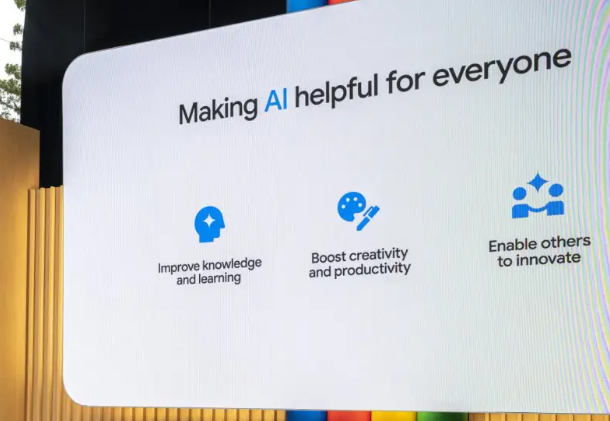When OpenAI unveiled ChatGPT, an AI chatbot, it posed a significant challenge to Google, making it the first major threat the company had faced in years. Google’s executives were determined to respond swiftly to protect their lucrative $162 billion business and recognized the potential of integrating AI across their products, from the search engine to email.
During their annual conference in Mountain View, California, Google showcased some of their latest developments. They announced that their search engine would now incorporate AI-generated responses at the top of search results and allow users to ask follow-up questions. While Google was already a pioneer in this technology, they had been cautious about fully embracing AI due to its inherent risks, such as the spread of false information.
However, the overwhelming success of ChatGPT surprised Google and the rest of Silicon Valley. In December, Google declared a state of urgency, known as a “code red,” to explore ways to incorporate generative AI, the technology behind ChatGPT, into their own products.
As of now, Google has integrated their latest AI technology into 25 products, including search updates and a feature to assist users in composing emails through Gmail. Sundar Pichai, Google’s CEO, expressed his excitement at this pivotal moment for the company, emphasizing their bold and responsible approach to utilizing generative AI after seven years of focusing on AI development.
Additionally, Google reinforced its hardware ambitions by releasing two new smartphones and a tablet. The high-end offering, Pixel Fold, marked Google’s entry into the foldable phone market, while the budget-friendly Pixel 7A was priced at $500. The Pixel Tablet was designed to be portable and capable of docking on a speaker, effectively functioning as a smart home display.
Google has been engaged in a competitive race against OpenAI and its partner, Microsoft. In February, Microsoft demonstrated the integration of OpenAI’s technology into its search engine, Bing, using a chatbot. However, Google has taken a more cautious approach compared to its main rivals. Instead of incorporating a chatbot into its search engine, which could propagate false information, Google has decided to use AI to provide answers corroborated by authoritative sources while continuing to display ads.
Liz Reid, a Google search vice-president, acknowledged that while the technology is impressive in some respects, it also presents various challenges. To enable users to access the latest search features, Google introduced Search Labs, a platform that allows users to test experimental features in collaboration with the company.
In response to ChatGPT, Google developed Bard, an experimental chatbot aimed at competing with its AI counterpart. Bard’s availability was expanded to over 180 countries recently. Pichai introduced the latest iteration of their powerful technology, Pathways Language Model 2 (PaLM 2), and revealed that work had already begun on an even larger model called Gemini. While safeguarding their search business remains crucial, Google sees enormous potential in allowing other companies to utilize its cloud computing services to develop their own AI services, potentially generating billions in revenue.
Google enhanced Bard’s capabilities, enabling it to generate emails, shopping lists, and poems, by leveraging the power of PaLM 2. The chatbot can now process and interpret images and enables users to export responses to applications like Gmail and Docs.
The integration of generative AI into Google’s Workspace applications, including Gmail, Docs, and Sheets, has already begun. Users will have the ability to create images for slide decks or draft documents using brief text descriptions, with options to customize the writing style to be more professional or casual.
Since the introduction of ChatGPT, Google has faced criticism from industry insiders who felt the company was not moving quickly enough to enhance its search capabilities. However, Liz Reid emphasized that Google’s vast user base is the primary feedback channel they pay the most attention to. She acknowledged the significant opportunity to meet people’s information needs worldwide and welcomed the multitude of players striving to address these challenges, as she believed it would benefit everyone’s evolution, including Google.
